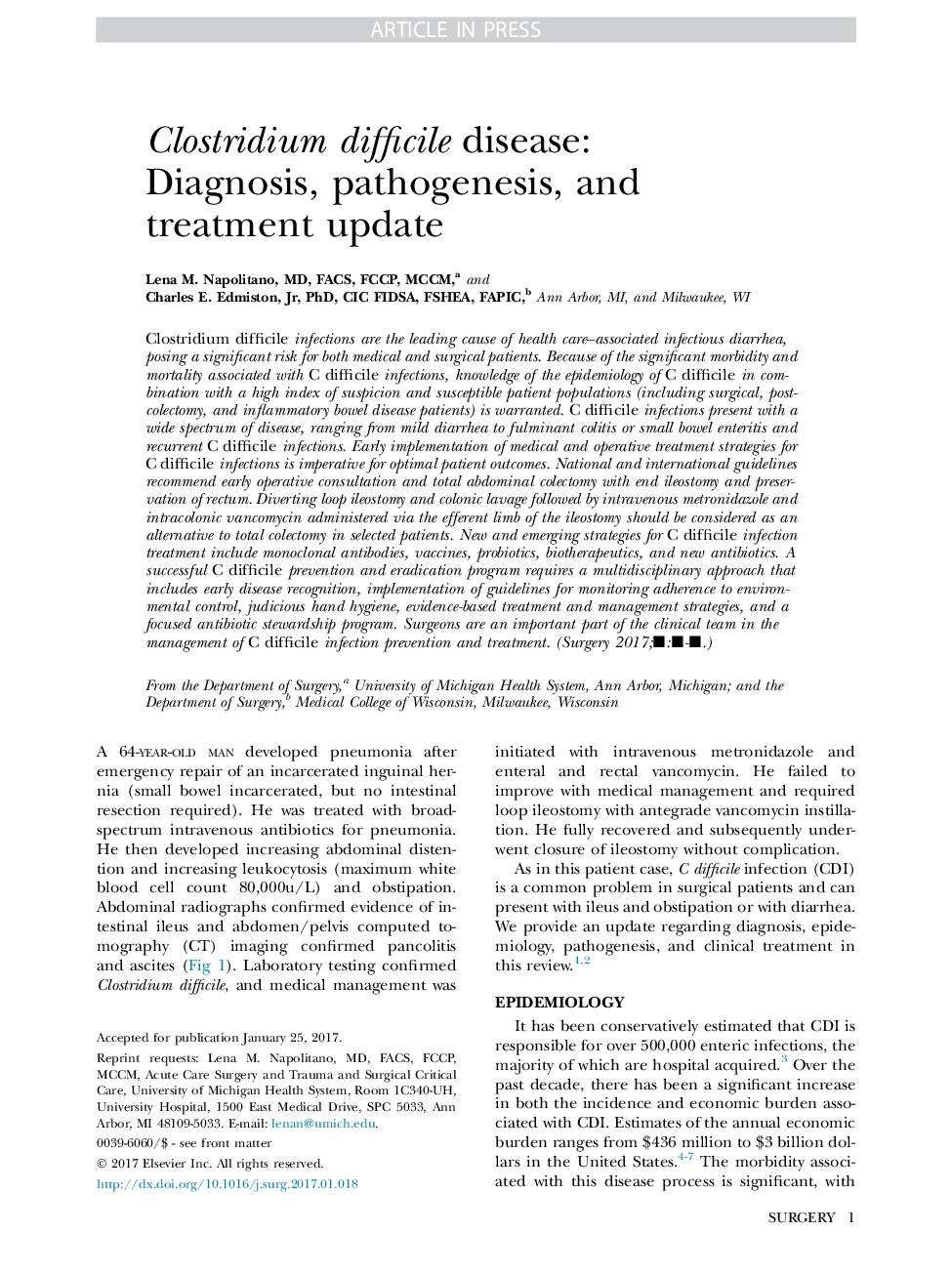| Article ID | Journal | Published Year | Pages | File Type |
|---|---|---|---|---|
| 5734690 | Surgery | 2017 | 24 Pages |
Abstract
Clostridium difficile infections are the leading cause of health care-associated infectious diarrhea, posing a significant risk for both medical and surgical patients. Because of the significant morbidity and mortality associated with C difficile infections, knowledge of the epidemiology of C difficile in combination with a high index of suspicion and susceptible patient populations (including surgical, postcolectomy, and inflammatory bowel disease patients) is warranted. C difficile infections present with a wide spectrum of disease, ranging from mild diarrhea to fulminant colitis or small bowel enteritis and recurrent C difficile infections. Early implementation of medical and operative treatment strategies for C difficile infections is imperative for optimal patient outcomes. National and international guidelines recommend early operative consultation and total abdominal colectomy with end ileostomy and preservation of rectum. Diverting loop ileostomy and colonic lavage followed by intravenous metronidazole and intracolonic vancomycin administered via the efferent limb of the ileostomy should be considered as an alternative to total colectomy in selected patients. New and emerging strategies for C difficile infection treatment include monoclonal antibodies, vaccines, probiotics, biotherapeutics, and new antibiotics. A successful C difficile prevention and eradication program requires a multidisciplinary approach that includes early disease recognition, implementation of guidelines for monitoring adherence to environmental control, judicious hand hygiene, evidence-based treatment and management strategies, and a focused antibiotic stewardship program. Surgeons are an important part of the clinical team in the management of C difficile infection prevention and treatment.
Related Topics
Health Sciences
Medicine and Dentistry
Surgery
Authors
Lena M. MD, FACS, FCCP, MCCM, Charles E. PhD, CIC FIDSA, FSHEA, FAPIC,
